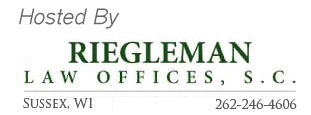Some attorneys unfortunately continue to assert reasons why personal injury patients’ medical payments coverage from their own automobile policy (often called “PIP”) should not be paid for chiropractic treatment expenses. This latest blog provides an explanation of the two “reasons” commonly used by these attorneys and provides some insights on how to effectively respond to these legal assertions.
One reason often given to the doctor is that “the patient” has elected to have the total amount of PIP paid directly to their attorney. The automobile insurer will usually honor such requests even though they are made by the attorney very early during representation often without the patient’s advance approval. While some attorneys will actually apply their contingency rate to this amount of PIP, other attorneys will distribute the proceeds to only those provider’s bills which they decide to pay.
There are at least three responses available to the doctor:
- Realize that only the patient can control the PIP and review the situation with the patient. You have the right to discuss billing policies with your patient and advise them that timely payment is expected in order to provide continued treatment and potentially assist with any litigation. The patient ultimately controls the distribution of their PIP and a doctor has the option of electing not to provide futher care if they are not receiving payments
- Consider billing other sources such as health insurance. Although PIP may not be available, other sources of compensation should be considered. All sources should be discussed with the patient.
- Assert you ongoing interests for payment with the attorney. The attorney has ongoing ethical responsibilities associated with the management of funds owed to unpaid providers upon settlement or litigation. Doctors should assert the interests contained in their “doctor’s liens” and keep the lawyer regularly informed of the unpaid balance and the expectation to be paid in full when the matter is resolved.
The other reason commonly advanced by the attorney is that PIP is unavailable because other sources of payment, such as health insurance or medicaid, should be billed for payment first. Utilizing such sources often results in the doctor being reimbursed at lower amounts than the actual service fees. There are several ways of responding to this assertion:
- Educate the attorney that billing medicare or medicaid payments for services is extremely limited and often prohibited. Use of such public funds for payment of fees in these types of liablity claims may violate medicare regulations and and are often relied upon only after other sources of payment from the negligent party are exhausted or unavailable. This site offers a number of useful forms on our “Resources” page which are samples in communicating with the attorney on this issue.
- Inform the attorney of restrictions in such billing found in state statutes and regulations. The important statute on the matter is found at Wis. Stats. 895.453 and regulation relating to Badger Care Plus is found at DHS 106.03. The regulation specifically requires that other sources of payment be used and exhausted before submitting to Forward Health. As with any of these legal issues, the contributors at this site are always willing to provide needed assistance.

 COMMUNITY.
COMMUNITY.